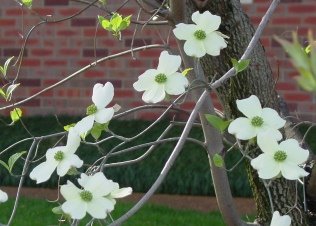Pinochet and Me
On Monday, December 11, 2006 Chilean ex-dictator Pinochet died. Pinochet overthrew the democratically elected Chilean President Salvador Allende, a “socialist” or at least that is what the U.S. in the middle of the Cold War thought. Upon taking control of the government Pinochet shocked the world by filling the soccer stadium in Santiago with political prisoners who were tortured, shot, disappeared or forced into exile.
On a live album released in the late seventies Peter Seeger and Arlo Guthrie told a story about a particular poet, Violeta Parra. and those “leftist” who were led to their execution in the stadium.
“Forced into exile” is an interesting choice of words for the A.P. When I lived in Bolivia I met a Chilean family. The father of the family had been an organizer for Allende in the northern town of Arrica. After Pinochet he could not find work of any kind. He was sort of “blacklisted” as a result of those activities. So he moved to Santa Cruz and started a shoe making business. The family always talked of Chile and how there were no young males in the 20’s to 30’s because they had been forced out of the country or worse yet, just disappeared.
When I traveled to Chile with the youngest daughter of the family I found that to be the case. I was in my early twenties and there were not too many males older than me who weren’t 40 something. I was also taken with the presence of the military. Now military presence was common in South America in the late seventies. The only democratic country at the time was Venezuela. But, the similarities between these troops and Nazi storm troopers were too overwhelming for this Combat television show fan.
I recall getting lost in Santiago and going up to one of these troopers who had a “submachine gun” on his shoulder and asking for directions. He was polite and began to tell me directions. He was even kind enough to gesture and point so I would be sure to understand. As he pointed left, then right the machine gun’s barrel followed his body tracing a path across my mid section. That was all I could think about. I quickly decided I would be better off consulting someone else who was a little less armed.
I also remember finding a restaurant that featured folk music. As we listened to the traditional songs of Chile and drank excellent red wine my traveling companion began to talk with the artist. Turned out he was Violeta Parra’s Uncle. Soon the restaurant was empty except for us; at that point he began to sing songs that had been banned.
When we left the restaurant we were filled with excitement and surprised at the empty streets. Then we were worried because there were no taxis. We proceeded to walk quite a distance through the empty streets to our hotel. The walk was uneventful except for the thrill of the music we had heard and its connection to the “revolution”. Turns out the streets were empty because there was a curfew.
On a live album released in the late seventies Peter Seeger and Arlo Guthrie told a story about a particular poet, Violeta Parra. and those “leftist” who were led to their execution in the stadium.
“Forced into exile” is an interesting choice of words for the A.P. When I lived in Bolivia I met a Chilean family. The father of the family had been an organizer for Allende in the northern town of Arrica. After Pinochet he could not find work of any kind. He was sort of “blacklisted” as a result of those activities. So he moved to Santa Cruz and started a shoe making business. The family always talked of Chile and how there were no young males in the 20’s to 30’s because they had been forced out of the country or worse yet, just disappeared.
When I traveled to Chile with the youngest daughter of the family I found that to be the case. I was in my early twenties and there were not too many males older than me who weren’t 40 something. I was also taken with the presence of the military. Now military presence was common in South America in the late seventies. The only democratic country at the time was Venezuela. But, the similarities between these troops and Nazi storm troopers were too overwhelming for this Combat television show fan.
I recall getting lost in Santiago and going up to one of these troopers who had a “submachine gun” on his shoulder and asking for directions. He was polite and began to tell me directions. He was even kind enough to gesture and point so I would be sure to understand. As he pointed left, then right the machine gun’s barrel followed his body tracing a path across my mid section. That was all I could think about. I quickly decided I would be better off consulting someone else who was a little less armed.
I also remember finding a restaurant that featured folk music. As we listened to the traditional songs of Chile and drank excellent red wine my traveling companion began to talk with the artist. Turned out he was Violeta Parra’s Uncle. Soon the restaurant was empty except for us; at that point he began to sing songs that had been banned.
When we left the restaurant we were filled with excitement and surprised at the empty streets. Then we were worried because there were no taxis. We proceeded to walk quite a distance through the empty streets to our hotel. The walk was uneventful except for the thrill of the music we had heard and its connection to the “revolution”. Turns out the streets were empty because there was a curfew.

